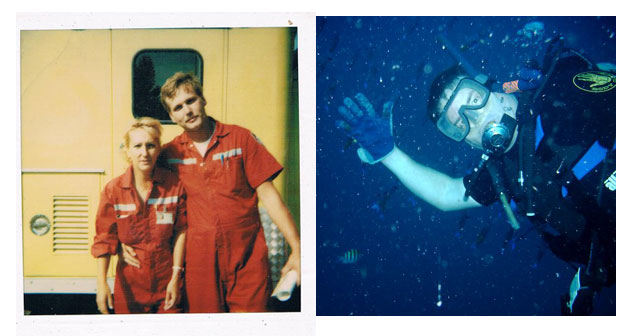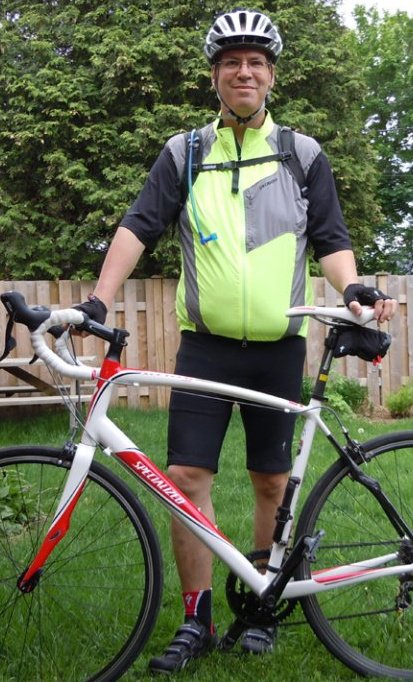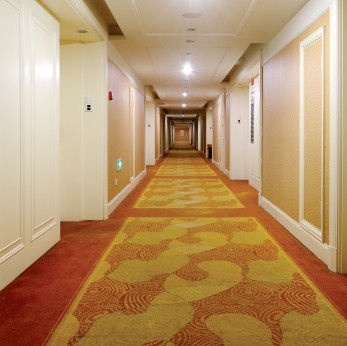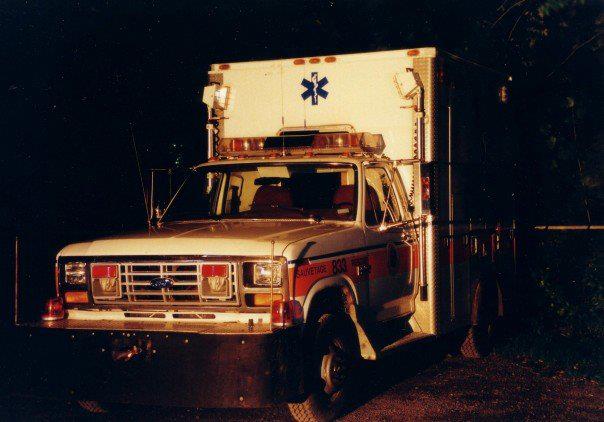The reaction from readers to The Positive Paramedic Project has been overwhelming.
I thought I should start collecting their notes and stories.
The entire series
“Hal, I wanted to let you know how much I appreciate what you are doing with the Positive Paramedic Project. I have been teaching EMS for a long time and also use my prior experiences as educational points in my teaching. Too many people tell war stories (our slang in my area, not sure if you all use it too) as they teach but they do it wrong, it is more about telling a story (sometimes because you want people to praise you for doing a good job, sometimes to try and elicit respect, and sometimes just to shock people) and less about the education. I really appreciate how well you are using your story telling abilities to enrich those you interact with. Even more than that I appreciate that you have decided to use the Internet to extend your reach; you have a gift and you realize that you have an obligation to use that to enrich as many people as you can.”
– Jeffrey Force, Colorado Springs CO
“Thanks for writing. I have had a few good laughs, remembered a few ghosts, and most importantly a change of attitude reading all 61 posts! Thanks”
– Sean Conaboy. Calgary AB
#61 Sometimes hungry is a state of mind
“What a great story! My rescues, Calleigh and Tucker, have the same behaviour with food and I often think it is because they were starving for days before they became members of the household. I love the accompanying photo you posted with the story. The cats are beautiful. “
– Deborah Okoniewski, Los Angeles CA
#59 The things we carry
“I thought I had it sorted out pretty well; I took care of my father and mother, in the house I had helped him build in the country. When Pappy died, I got through it, because I had custody of two kids, and I still had to take care of Mom, who didn’t drive, and lived in the house, 15 miles from Knoxville. So for another 11 years, I single-parented the kids, and took care of Mom, who had emphysema and early-stage lung cancer. The cancer got worse and worse, and it was still something I could handle; Mom and I had never gotten along, but that didn’t matter when your job is to deal with what had to be dealt with, and keep working, and keep raising the kids. Then Mom died, and I didn’t know what to do about that, but I still had one daughter in high school, and I took care of her everyday, and it was okay, I had a place in the world.
Then she moved into the dorm and started college, and she had scholarships and grants and the trust fund, and I no longer knew who I was, and I had never dealt with my father and mother’s deaths, and for a year I was paralyzed emotionally, just go to work and come home, and I hadn’t a clue who or what I was. Sometimes life is just totally out of control, and all you can do is keep breathing, keep doing what your job is, and try not to think… “
– Robert Hopkins, Gainesville FL
#48 Asking why?
#42 Let go of your ghosts
“I think if you have been an EMS provider for a while, we all have ghosts. Mine happens to be a member of my own squad. He was actually a member of my household. He had come into some hard times and my husband and I had taken him in. We were like family. One Saturday night, he asked me to come pull duty with him as he was short on crew members. I got a babysitter for my son, who was 7 at the time. My husband was in the hospital. Normally, when we pulled duty, we rode on the same unit. That night, for some unknown reason, we didn’t ride together. He rode on the crash truck and I was the driver on one of the ambulances. All went ok until about 1 in the am…we got a call for an accident involving a police officer. He had stopped a driver for DUI and was struck by another DUI driver. The second driver fled the scene. All hell broke loose then. Everyone in the county…fire, police and rescue…were on the scene. Fortunately the officer had only minor injuries and my unit wisked him away to the hospital. After dropping him off, we were asked to return to the scene. When we did, we found one of our members, Pat, unconcious on the ground. A third drunk driver had come along and blown thru the scene.
As we approached, his leg was obviously broken and his foot was pulled partially out of his boot. His helmet liner had been ripped out of the helmet by the force of the blow he took. We quickly backboarded him and transported him to the closest hospital. We did not have an ALS provider with us that night. We didn’t want to wait for one either. Looking back, it would not have mattered. He had a herniated brain stem and his femoral arteries were severed. He bleed to death, but internally. Fortunately, especially for me, he did not code until after arriving at the hospital. There was another young member on the scene with him that had been hurt also. I got involved with taking care of him when we got to the hospital. He was only 17 and I had to call his dad and wait with him until his parents got there….so I was able to hold it together until then. I could see CPR being performed on Pat through the break in the curtains, but did not say anything to the yound kid about it.
I remember the drive to the hospital. It was the fastest that I have ever driven an ambulance. At one point I went over a dip in the road and was going too fast. The unit went airborne momentarily. The people in the back on the bench seat were like Weebles….Weebles wooble, but don’t fall down. I saw them all go back and come back upright in unison. That made me slow down a little.
I remember some of the thoughts that went through my head like it was usterday. The date of that fatefull night was November 8, 1981. Pat died a little after 2 that morning. I have told many squad members that story when asked what was the worst call I have been on. I can tell it now without crying thru the whole thing…but it will remain with me for life. It does help to share our stories…it helps to heal, but it does not take them away.
Be safe, practice big medicine…”
– Gerry Kirkum, Richmond VA
“Hal, Thank you for sharing this story. If we have been in this business for any length of time, we all have ghost stories. However we must continue to carry on and perform under the utmost of difficult circumstances. We must also remember that as long as the stories do not consume us so that we can no longer function, then we are well. Maybe they are there to remind us of how fragile life truly is. Be safe.”
– M. Thomas (Tom) Quail, Boston MA
#39 Tune in to your gut’s alert frequency
“Good article, Hal. I have found that my gut seems to become more in-tune as I age. LOL.”
– Robby Beaudin, Cleveland OH
#32 Don’t take yourself too seriously
“This story was great and reminded me of some very humorous calls that didn’t start out that way. I really love your stories.”
– Deborah Okoniewski, Los Angeles CA
“Hilarious!!! We all have stories like that, Hal…and if we don’t think we do, we haven’t tried hard enough to think of them, or we take ourselves far too seriously!!! Great story!!”
– Sgt (ret’d) Damien Coakeley, Ottawa ON
#31 It’s not the uniform
“If “it’s not the uniform”, then why are Fire Chiefs, EMS Chiefs, and agency managers so anal about the uniform. If I am comfortable in what I am wearing, then I am going to treat my customer a whole lot better. Besides I don’t think the customer really cares about what I am wearing as long as I am competent and confident in resolving their problem.”
– Allen Young, Columbus OH
“I love it Hal. I would never have allowed you to be suspended for wearing rabbit ears. I have to admit that I notice the military styles and titles of EMS leaders in the USA and Canada. It’s become very different in the UK. When I got my first senior post, my chief took me around and reintroduced me to people I’d worked with for years as “Mr Murray”. I found that as difficult as they did. For years now, I’ve been Alan to everyone – and I admit that some of my colleagues found that equally difficult. In my last year, I used to come to work most days in black Levis and an open-necked shirt. I’d employ you, not in spite of the rabbit ears but BECAUSE of them.
In Belfast in the 1980s, I tried to remove rank markings from the working uniform. I met opposition not only from those who wore rank but also from those who didn’t. That experience underpins my view that paramedics can adopt contradictory modes of behaviour: being self-actuating professionals when it suits them and, when it doesn’t, seeking the comfort of being “privates in this here army”. That simply reinforces my view that rank is a hiding place for non-managers. It’s also a spurious source of authority for weak managers who haven’t identified that their true source of authority is their expertise and the support they can offer their clinical colleagues.
With all the changes that are happening in pre-hospital and unscheduled care in the UK, I’ve reconciled myself to the long game. In an increasingly professionalised service, people are working this out for themselves. In the meantime, more and more of us are pushing these messages, ensuring that they are delivered in development programmes and setting an example by eschewing rank markings ourselves. In a big incident, we have a well understood system of role markings that leave no doubt about who is doing what.”
– Alan Murray, Wales UK
“I enjoyed your article Hal. It sounds like you had already earned your respect as a paramedic and a good employee. Although they put those write ups in your file, it sounds like it was more of a formality! Caring for our patients should always be our number one priority. I must say to Allen’s comment that looking professional is very important for two reasons. First off respect for our profession and secondly we must instill confidence in our patients that we can provide them with the care they deserve in the enviroments that we find them. We must stand out in the chaos as the professional that is their to help them. ”
– Pamela Martinez, Los Angeles CA
“I enjoyed reading your story and the comments about it. I think it was great that you were able to help the little girl and make her feel comfortable with the rabbit ears. I don’t think it is the uniform that makes the paramedic, but I do think it is comforting to some people that we arive in uniform to help them. I have responded to a call in a skirt and heels more than once. They (the patient) didn’t care, but I did get some funny looks at the hospital. One time one of the firefighters on the scene made a comment, “Oh, this must be casual Friday.” I had gotten caught by a call when dropping by the station after work. The evening shift crew had not all arrived. I went on the call dressed as I was dressed for my office job. It did not change my care for the patient. If I had not gone, there would not have been a crew to respond from the closest station. Thanks for sharing your stories with us.”
– Gerry Kirkhum, Richmond VA
“Hal…..that was fantastic, and very touching. reminds me of Patch Adams in the hospitals playing with kids…he also had several reprimands. The point was well taken…I mean I get the importance of a uniform, as it hels identify who is in a postition to help…or the role..firerescue?EMS? LEO? Etc.. But that little girl was most likely saved from not only from a dangerous wreck, but your use of approp. de-escalating tecnhiques…may have saved her from developing PTSD…instead of fear, nightmares,,etc…she will remember that Capt. Freedom went to any lengths to help with a pediatric patient. My Hats (ears???) off to you!”
– Mary Moonen, Sarasota FL
“AMEN… My volunteer service wasn’t uniformed and while i didn’t have a “fun” outfit I did try to make the care I provided personal. I also got in trouble at various points.. Patient Care over Politics, Patient Privacy vs News Cameraman, and when I switched top a new state and department with a huge divide between Fire Service and EMS, I was suspended because as a Fire Fighter at a wreck, I crawled into and upside down care and stabilized the patient and prepared imobilization and extrication while EMS (located 100 yards from the FD) took an additional 20 minutes to respond….Let Captain Freedom be a role model for EMS providers everywhere. If you want spit and polish join the Air Force.”
– Alan Davis, Seattle WA
#28 Don’t succumb to stranger danger
“I read your story and thought it was interesting. Sorry you were denied the opportunity to help your fellow neighbors. I have seen it happen in my own volunteer rescue squad. Sometimes it seems if you are too eager, you get ousted. Is this right….probably not. Why does it happen? I am not sure…maybe because the powers that be feel threatened?? Maybe your personality just didn’t fit with the group. I don’t know you, so I can’t be a judge of that. It takes all kinds of people to make an organization work. Why can’t we all just get along and work together for the better good?”
– Gerry Kirkhum, Richmond VA
“Given the political climate of many large organizations, regardless of their affiliation, I cannot say that I am surprised to hear this. Disappointed? Definitely, but surprised, not at all. The only thing I can say, Hal is that with your experience, some in positions of power, could hold simply that, their positions, over you, and saw you as a threat to their own little fiefdom. Thus, they did everything in their power to eliminate the threat. Unfortunately, too much of that “old boys network” still exists. While it too has its time and place, there has to be a balance between doing what you think you need to do for “self preservation” and what you signed up to do…serve the community…and the tip of that balance, as far as I am concerned, should always go to the community or the greater good. Don’t give up…someone can use you…keep up the anecdotes…they are wonderful!”
Sgt. (ret’d) Damien Coakeley, Ottawa ON
#26 Recommend early, recommend often
“This is a great idea and a practice I should take up. I know I am reluctant to offer recommendations lest I seem like I am “putting on airs” and I have been reluctant to ask because I never want to be a burden. Making it a standard practice (even if only you and the team member see it) really could help with both problems and offer a venue for the sort of specific, detailed, positive feedback that I enjoy and which seems to me the most helpful in spurring growth.”
– Melissa Hall, Tallahassee FL
#22 Get out of the way
“What a great story and one where we can all walk away with something here. It is important to understand the we must empower people to do what is right not necessarily what is easy. Thanks for the insight here Hal I know from my own perspective what you shared is very real and important to the sucess of any organization.”
– Sylvain Lepine, Ontario



